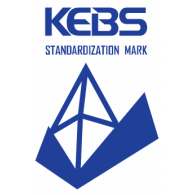The Kenya Bureau of Standards (KEBS) has rejected the cooking oil imported by the government, terming it unfit for human consumption.
"The consignments have been rejected, and the importer is hereby advised to reship them to the country of origin within 30 days of the date of this letter, or they will be destroyed at the importer's expense."

"The Kenya Bureau of Standards tested consignments with the serial numbers 23MBAIM402473344, 23MBAIM403321628, and 23MBAIM403235943 against the Kenya Standardisation Specification for Fortified Edible Oils and Fats."
Did you read this?
"The results established that the consignments failed to comply in Vitamin A and Insoluble Impurities."
In its final report, KEBS determined that the Edible Oils surpassed the required quantity of fat content by 0.47% by mass, containing 99.97 instead of the required 99.5. While the acceptable level for moisture and volatile matter at 105°C is 0.2, the oils tested included 0.03.
The acid value of the edible oils tested in milligrams of potassium hydroxide was 0.12, while the required level was 0.6. While the required amount of peroxide oxygen per kilogram of oil is 10, Edible Oils contain 5.42.

The KEBS analysis also discovered that the imported oil contains 0.04 percent insoluble contaminants, although the required standard is 0.05.
While the KEBS study was conducted in July, it is unclear why the other consignments transported in before July were not subjected to laboratory testing and why KEBS did not destroy the oil as stated in its letter.
Consignment number 23MBAIM402747001, shipped by Multi Commerce FZC registered in Sharjah, UAE, was not tested.
The importation of 125,000 MT of edible oil was intended to reduce the cost of living. However, the price of the consignment was exaggerated, rendering it uncompetitive.
The DCI and the EACC questioned top KNTC officials last week after it was revealed that companies owned by people with government ties were single-sourced to acquire food and edible oils through KNTC.









